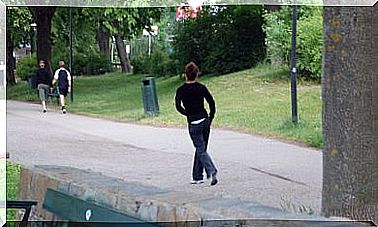8 Techniques To Learn Faster
The learning process is very subjective, but there are some techniques to learn faster that can be quite useful. What do they depend on? Of the skills that we are acquiring and developing in our different roles, whether as students, teachers or parents.
However, these learning skills can be acquired through methods such as reading, recognized as one of the most important study techniques, since words are recognized, ideas are understood and you can compare your thinking with that of the author.
Another technique to learn faster lies in teaching others what you already know. This happens because you see the need to study more about the subjects you will teach, even if you already master them. In fact, during this process you will be able to identify which study technique is the best.
What can learning depend on?
Learning can be linked to many aspects. Among them are the methodologies and competencies used by whoever is teaching us.
In this process it is very important to recognize that not all the things we think are as we imagine them. This will allow us to be more open when it comes to acquiring knowledge.
It is also important to recognize that there are different kinds of talents or abilities, so one person may be good at numbers and another good at writing.
On the other hand, learning will depend on one’s own commitment. You shouldn’t delegate it just because it costs you a little more. Turn that difficulty into a motivator; think that with the passage of time you can become good. Be curious, identify what you find interesting and go deeper.
Finally, remember that passion and desire are everything. If you are passionate about something, make an effort to fill your head with new knowledge, for which it is very useful to exercise your memory.
By training your brain you will notice that the learning process is facilitated and you will remember what you have learned for longer and more easily. When you train your memory you can acquire skills such as concentration, visualization, organization and imagination.
Techniques you can use to learn faster
Here are several techniques that you can use to improve your learning ability. Maybe some you like and you can put it into practice.
1. Good planning
On many occasions, due to lack of time, we forget the importance of mental planning. This is ideal because we can identify priorities, measure the time and effort we make to get our work done.
It is normal that at first it may seem a bit tedious and it may be difficult for you to do it, but once you do it, you will notice how this cognitive ability improves your ability to learn faster.
2. Use a study method
Identify which methodology is best for you when learning. Remember that there are several and you can choose more than one.
You will even see that with each activity you will be able to reinforce what you already know. You can read, make conceptual, mental, comparative pictures, make summaries or memorize.
3. Practice mindfulness
Studies have shown that mindfulness , also called mindfulness , increases cognitive function. This technique includes learning about anxiety control, emotion regulation, and concentration and breathing management.
This set of skills can help you learn faster and handle frustration in cases where the subject to learn is complicated.
4. Distribute learning
If you study a little every day you will be able to remember all the information easier. In this way, you will help yourself to cancel the mental fatigue that can occur in moments in which you seek to learn everything that is required.
In addition, by distributing the material or modules, you will open spaces for you to ask yourself questions that help reinforce what you already know.
5. Be confident
One of the biggest obstacles when learning something new is mistrust in yourself. Will I be able to learn everything? How long will it take me to master the subject? If I better look for something easier? These are some of the questions that may arise.
However, we should not get carried away by that feeling of frustration. Learning is a process and, depending on the topic, we can feel it more or less easy.
6. Teach someone else
As we already mentioned, when we teach someone what we know we are remembering that knowledge. In addition, we open a space for the people we are teaching to ask us their questions. That puts us in need of deepening what we already know.
This technique is usually very helpful, but you must identify if it may be within your abilities to teach. Remember that not all of us have that talent.
7. Sleep
Sometimes we are so interested in learning that we put rest aside. It is important that you have time to get some sleep between study sessions. This will help you be more focused and give you time to study what you have learned.
On the other hand, it has been proven that sleep allows the brain to keep its intellectual functions active, as well as alertness, which is useful when we must undergo long hours of learning.
8. Take notes
If you are reading or someone is explaining something to you, remember that a note of what is relevant will help you not to forget. At this point, the memory phases (attention, encoding, and storage) are firmer.
In addition, you can put the note in a place that you can see, so you will always have it in mind. In fact, this is another quick learning technique often used when learning a new language. You relate the word to the object and review it whenever you can.
What other techniques to learn faster do you know?
Good planning when learning can help you better understand the information. If you put one or more of the techniques that we describe into practice, you will surely see how, in addition to learning, you can remember very well everything you studied at other times.
As we told you, don’t feel bad if it’s a bit difficult for you to learn at first. The learning process depends on the subject and your skills. We all have different approaches. However, you will achieve it and you will see how the effort and dedication will pay off.








